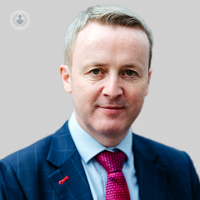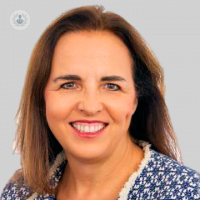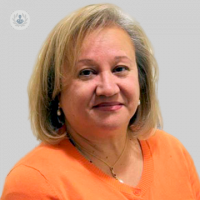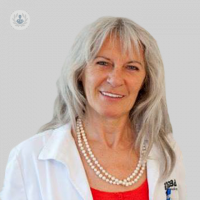What is chronic fatigue syndrome?
Chronic fatigue syndrome (CFS) is a condition which involves long-term disabling tiredness.
It affects about 200,000 people in the UK, and it generally develops between the ages of 20 and 40. It is three times as common in women as in men.
Chronic fatigue syndrome is also known as myalgic encephalomyelitis, or ME.

Can chronic fatigue syndrome be cured?
There is no cure for chronic fatigue syndrome. Symptoms can fluctuate and are different for each person. Some people will completely recover from the condition within a couple of years, whereas others are affected for a longer period of time. Those who are diagnosed with the condition at a young age tend to have a better long-term outlook.
What are the symptoms?
The main symptoms of chronic fatigue syndrome is persistent tiredness - tiredness that doesn’t improve much after rest, and tends to develop a day after activity (known as “post-exertional malaise”.
In addition, it is common to develop other symptoms including:
- sleeping problems - such as sleeping too much, too little, or having irregular sleeping patterns
- cognitive problems - difficulty with memory, concentration, attention span, or planning
- muscle pain or joint pain
- headaches
- sore throat
- dizziness or nausea
- heart palpitations
Symptoms generally get worse after overexertion, and can vary from day to day.
The symptoms can also vary from person to person, leading many doctors to believe that chronic fatigue syndrome could represent a number of different conditions rather than just one.
What causes chronic fatigue syndrome?
The cause of chronic fatigue syndrome is not known. Currently the most popular theory is that it is caused by a viral infection. However, it is not known why symptoms of chronic fatigue syndrome persist even after the original infection has cleared up, and there are many people who develop chronic fatigue syndrome without an infection.
Other suspected “triggers” of chronic fatigue syndrome include:
- bacterial infections
- hormonal imbalance
- stress
- depression
How is it diagnosed?
There is no test to diagnose chronic fatigue syndrome. Chronic fatigue syndrome is generally diagnosed when the doctor has made an assessment of your symptoms and can’t find another cause. To rule out other conditions the doctor might ask for blood and urine tests in addition to a clinical examination.
How is it treated?
Treatment for chronic fatigue syndrome can include advice and guidance, medication, and therapy.
Advice and guidance
There a lot of thing you can do to manage chronic fatigue syndrome, and your doctor will likely advise you on:
- how to get a better night’s sleep
- how to incorporate periods of rest into your routine
- how to manage pain or stress through relaxation techniques
Medication
Although there is no medication to treat chronic fatigue syndrome directly, the doctor might treat pain or sleep problems with antidepressants, or might recommend over-the-counter painkillers.
Therapy
Graded exercise therapy (GET) is commonly recommended for chronic fatigue syndrome. GET is a structured treatment involving a physiotherapist or occupational therapist that aims to help you gradually increase your ability to physical activity.
Cognitive behavioural therapy (CBT) can help you establish a better sleep routine and manage your energy levels, as well as cope with the psychological impact of your condition. CBT is carried out by a psychotherapist.
02-19-2014 11-02-2023Chronic fatigue
Dr Gerald Coakley - Rheumatology
Created on: 02-19-2014
Updated on: 11-02-2023
Edited by: Karolyn Judge
What is chronic fatigue syndrome?
Chronic fatigue syndrome (CFS) is a condition which involves long-term disabling tiredness.
It affects about 200,000 people in the UK, and it generally develops between the ages of 20 and 40. It is three times as common in women as in men.
Chronic fatigue syndrome is also known as myalgic encephalomyelitis, or ME.

Can chronic fatigue syndrome be cured?
There is no cure for chronic fatigue syndrome. Symptoms can fluctuate and are different for each person. Some people will completely recover from the condition within a couple of years, whereas others are affected for a longer period of time. Those who are diagnosed with the condition at a young age tend to have a better long-term outlook.
What are the symptoms?
The main symptoms of chronic fatigue syndrome is persistent tiredness - tiredness that doesn’t improve much after rest, and tends to develop a day after activity (known as “post-exertional malaise”.
In addition, it is common to develop other symptoms including:
- sleeping problems - such as sleeping too much, too little, or having irregular sleeping patterns
- cognitive problems - difficulty with memory, concentration, attention span, or planning
- muscle pain or joint pain
- headaches
- sore throat
- dizziness or nausea
- heart palpitations
Symptoms generally get worse after overexertion, and can vary from day to day.
The symptoms can also vary from person to person, leading many doctors to believe that chronic fatigue syndrome could represent a number of different conditions rather than just one.
What causes chronic fatigue syndrome?
The cause of chronic fatigue syndrome is not known. Currently the most popular theory is that it is caused by a viral infection. However, it is not known why symptoms of chronic fatigue syndrome persist even after the original infection has cleared up, and there are many people who develop chronic fatigue syndrome without an infection.
Other suspected “triggers” of chronic fatigue syndrome include:
- bacterial infections
- hormonal imbalance
- stress
- depression
How is it diagnosed?
There is no test to diagnose chronic fatigue syndrome. Chronic fatigue syndrome is generally diagnosed when the doctor has made an assessment of your symptoms and can’t find another cause. To rule out other conditions the doctor might ask for blood and urine tests in addition to a clinical examination.
How is it treated?
Treatment for chronic fatigue syndrome can include advice and guidance, medication, and therapy.
Advice and guidance
There a lot of thing you can do to manage chronic fatigue syndrome, and your doctor will likely advise you on:
- how to get a better night’s sleep
- how to incorporate periods of rest into your routine
- how to manage pain or stress through relaxation techniques
Medication
Although there is no medication to treat chronic fatigue syndrome directly, the doctor might treat pain or sleep problems with antidepressants, or might recommend over-the-counter painkillers.
Therapy
Graded exercise therapy (GET) is commonly recommended for chronic fatigue syndrome. GET is a structured treatment involving a physiotherapist or occupational therapist that aims to help you gradually increase your ability to physical activity.
Cognitive behavioural therapy (CBT) can help you establish a better sleep routine and manage your energy levels, as well as cope with the psychological impact of your condition. CBT is carried out by a psychotherapist.
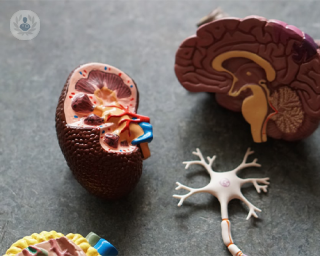

Vagus nerve dysfunction: What is it and what are the main symptoms?
By Professor Owen Epstein
2025-01-15
Vagus nerve dysfunction occurs when the vagus nerve has been damaged due to a past infection or inflammation or when we experience a prolonged period of physical or mental stress. In our latest article, renowned gastroenterologist, Professor Owen Epstein, talks us through vagus nerve dysfunction, offering us a handful of useful home remedies for the condition. See more
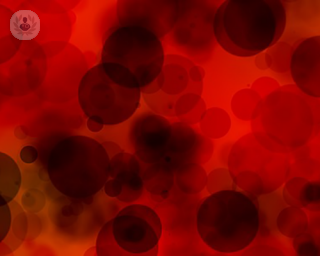

Low blood count: Causes, management and treatment
By Dr David Wrench
2025-01-15
From fatigue and low energy to a serious risk of dangerous infection, the consequences of a low blood count can vary greatly. Renowned consultant haematologist Dr David Wrench provides an all-you-need-to-know guide to low blood count and what it means for patients in this illuminating article. See more


What are the causes of fatigue in older adults?
By Dr Maria Corretge
2025-01-15
While it’s common to experience tiredness in old age, ongoing or severe fatigue can indicate an underlying health issue that needs to be evaluated and monitored carefully by a specialist and a care team. Here to provide an expert insight into fatigue in elderly adults, including causes, signs, and management, is Dr Maria Corretge, renowned consultant geriatrician and general physician with specialism in chronic fatigue and healthy ageing. See more


Connecting post-viral fatigue with hormones
By Dr Paul Jenkins
2025-01-14
Finding relief from post-viral fatigue starts with recognising the signs and symptoms. Top consultant physician and endocrinologist Dr Paul Jenkins explains what to look out for, especially in regards to conditions related to hormonal problems, alongside diagnosis of this debilitating condition. See more
Experts in Chronic fatigue
-
Dr Julius Bourke
PsychiatryExpert in:
- Chronic fatigue
- Stress
- Depression
- Anxiety
- Neuropsychiatry
- Chronic pain
-
Dr Eileen Baildam
RheumatologyExpert in:
- Juvenile arthritis
- Scleroderma
- Lupus
- Hypermobility
- Chronic fatigue
- Chronic pain
-
Dr Bushra Al-Rubeyi
PaediatricsExpert in:
- Child development
- Paediatrics
- Asthma
- Constipation
- Chronic fatigue
- Child allergies
-
Dr Pramod Nair
PaediatricsExpert in:
- PoTS syndrome
- Child allergies
- Chronic fatigue
- Abdominal pain
- Respiratory diseases
-
Dr Margareta Griesz-Brisson
NeurologyExpert in:
- Neurological disorders
- Neuropathic pain
- Neurorehabilitation
- Memory disorder
- Chronic pain
- Chronic fatigue
- See all

Cleveland Clinic London Hospital
Cleveland Clinic London Hospital
33 Grosvenor Place
No existe teléfono en el centro.
By using the telephone number provided by TOP DOCTORS, you automatically agree to let us use your phone number for statistical and commercial purposes. For further information, read our Privacy Policy
Top Doctors

The Saxon Clinic - part of Circle Health Group
The Saxon Clinic - part of Circle Health Group
V7 Saxon St, Coffee Hall, Milton Keynes MK6 5LR
No existe teléfono en el centro.
By using the telephone number provided by TOP DOCTORS, you automatically agree to let us use your phone number for statistical and commercial purposes. For further information, read our Privacy Policy
Top Doctors

77 Wimpole Street
77 Wimpole Street
77 Wimpole Street, London. W1G 9RU
No existe teléfono en el centro.
By using the telephone number provided by TOP DOCTORS, you automatically agree to let us use your phone number for statistical and commercial purposes. For further information, read our Privacy Policy
Top Doctors
-
Cleveland Clinic London Hospital
33 Grosvenor Place, Central LondonExpert in:
- Cardiology
- Colorectal surgery
- Minimal access surgery (keyhole surgery)
- Gallbladder surgery
- Diagnostic Imaging
- Ultrasound
-
The Saxon Clinic - part of Circle Health Group
V7 Saxon St, Coffee Hall, Milton Keynes MK6 5LR, Milton KeynesExpert in:
- General Surgery
- Orthopaedic surgery
- Gastroenterology
- Obstetrics and Gynaecology
- Paediatrics
- Urology
-
77 Wimpole Street
77 Wimpole Street, London. W1G 9RU, W1G Marylebone LondonExpert in:
- Homecare
- Cardiology
- Preventive cardiology
- Cardiovascular disease
- Respiratory diseases
- Hypertension
- See all
- Most viewed diseases, medical tests, and treatments
- Trigeminal neuralgia
- Snoring
- Immunotherapy
- Alzheimer's disease
- Chronic headache
- Peripheral nerve block
- Child nutrition
- Migraine
- Maternal mental health
- Paediatric rheumatology
